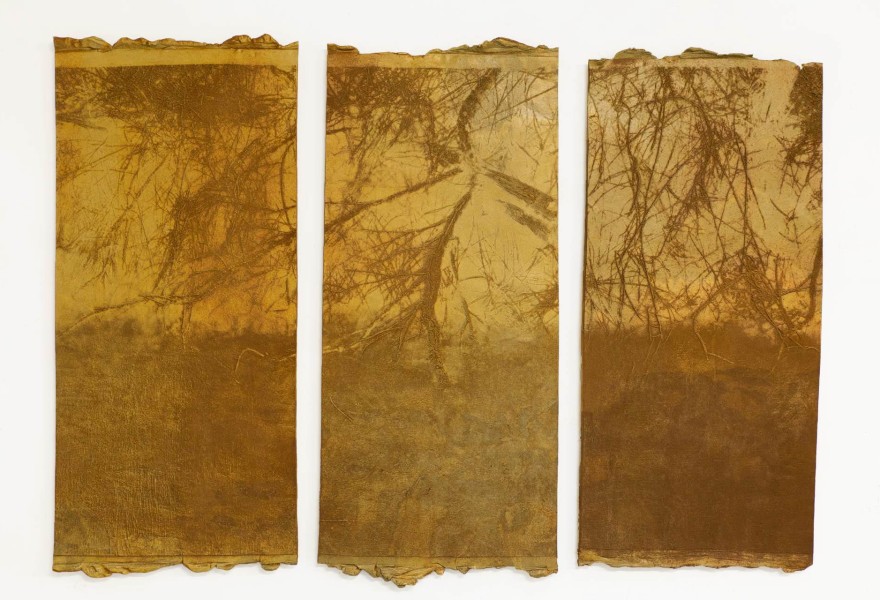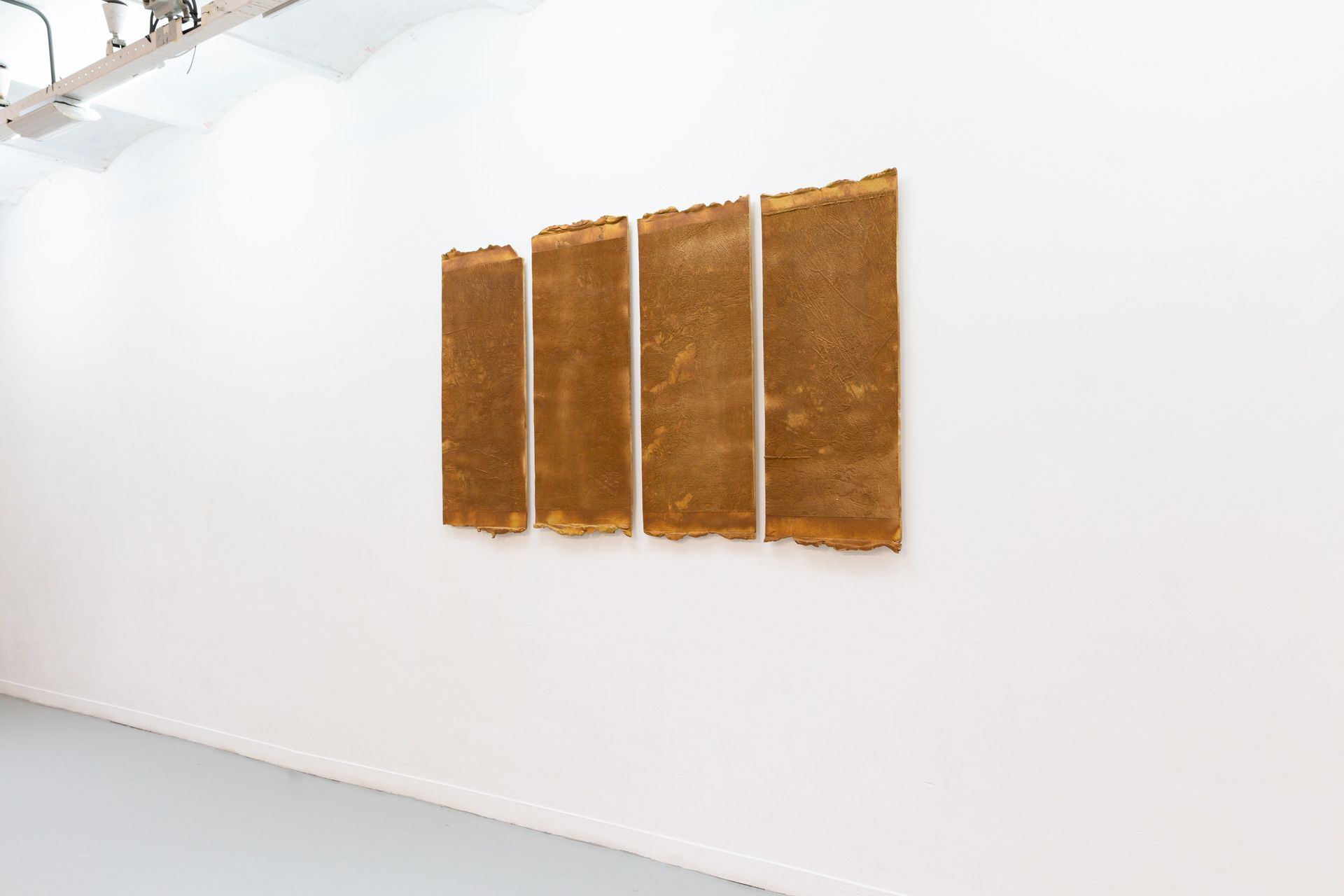24 november 2023, Flor Linckens
Tanja Engelberts: the Rhône as a living artwork
Until 23 December, Galerie Caroline O’Breen in Amsterdam is showing a solo exhibition by Tanja Engelberts. The Dutch artist explores how to capture landscapes that are no longer visible. She delves deeper into the relationship between human beings and nature, specifically how this relationship shapes and transforms our environment. She is particularly fascinated by changing landscapes influenced by our fossil energy production and the enduring processes it sets in motion, both advertendly and inadvertendly.
Engelberts shapes these landscapes in novel ways using a multitude of disciplines, including photography, film, sound, and text. In previous projects for instance, the artist focused on the North Sea, the northern boreal forests, and artificial islands, often involving long-term research projects.
For the series "Dead River," currently exhibited at Galerie Caroline O’Breen, Engelberts specifically examined the Rhône River, declared dead in the 1950s due to industrial developments along its banks, including nuclear power plants and chemical factories. The artist tries to envision how this human-controlled river must have experienced these changes itself. To imagine what it must be like for a fast-flowing river of 600 kilometers to slowly gather objects from the Anthropocene, an era marked by human intervention and pollution. In doing so, the artist creates a certain distance. She departs from an animistic perspective, which entails that natural objects and phenomena, such as animals, plants, and even stones, have spiritual beings or souls and can, therefore, be considered as living and conscious entities. This approach is inspired by the work of the French philosopher Bruno Latour, who argues in "The Parliament of Things" that laws and politics should not only revolve around humans but also non-human entities and objects. He emphasises the necessity of integrating ecological and animistic perspectives into our understanding of the world, and notably, into decision-making. Following these principles, Engelberts followed the Rhône from the Mediterranean Sea to its source in the Swiss glaciers, where she discovered a landscape saturated with chemical waste, slowly disappearing due to climate change.
Engelberts: “The perception of landscape through photography and materiality is the core of my artistic practice. How do you show the experience of a landscape, and the many layers like history, economics and culture that make up a place? Through the cycle of photography and material play I investigated the duality between the perception of a romantic landscape and the economic reality of today’s world. The photographic image captures presence, but spatial experience and the viewer do not seem to relate well to a flat two-dimensional image. This is where other techniques come into play: collages, scale models, printing techniques and sculpture.”
Furthermore, for the video work "We Exhale," she collaborated with sound artist Liz Harris to create soundscapes that represent the sounds of a polluted river and visualizing how these sounds change as the river becomes more contaminated. This poetic exploration, which also integrated field recordings, suggests how a poisoned river might exhale.
The "Dead River" series originated as a location-specific research project during the residency program The Shelter in Arles, commissioned by FOTODOK and made possible in part by the MIAP foundation. Several works from the series were subsequently selected for the international festival Rencontres d'Arles.
Engelberts studied at AKI ArtEZ, followed by courses at the Toyo Institute of Art and Design in Tokyo and the Chelsea College of Arts in London. In 2021, she completed a two-year residency at the Rijksakademie van Beeldende Kunsten in Amsterdam. She also participated in various residency programs in Canada, the United States, and Finland. Her work has been exhibited at venues such as the Robert Capa Contemporary Photography Center in Budapest, Het Nieuwe Instituut and Brutus in Rotterdam, and the Edith-Russ-Haus for Media Art in Oldenburg. Until 7 January 2024, her work is exhibited at Rijksmuseum Twenthe in the group exhibition 'Extravism', focusing on the ecological, economic and geopolitical consequences of resource extraction. Engelberts' work has also been included in the collections of De Nederlandsche Bank, ING, Nationale Nederlanden, Clifford Chance, and Chelsea College of Art (special collections).



